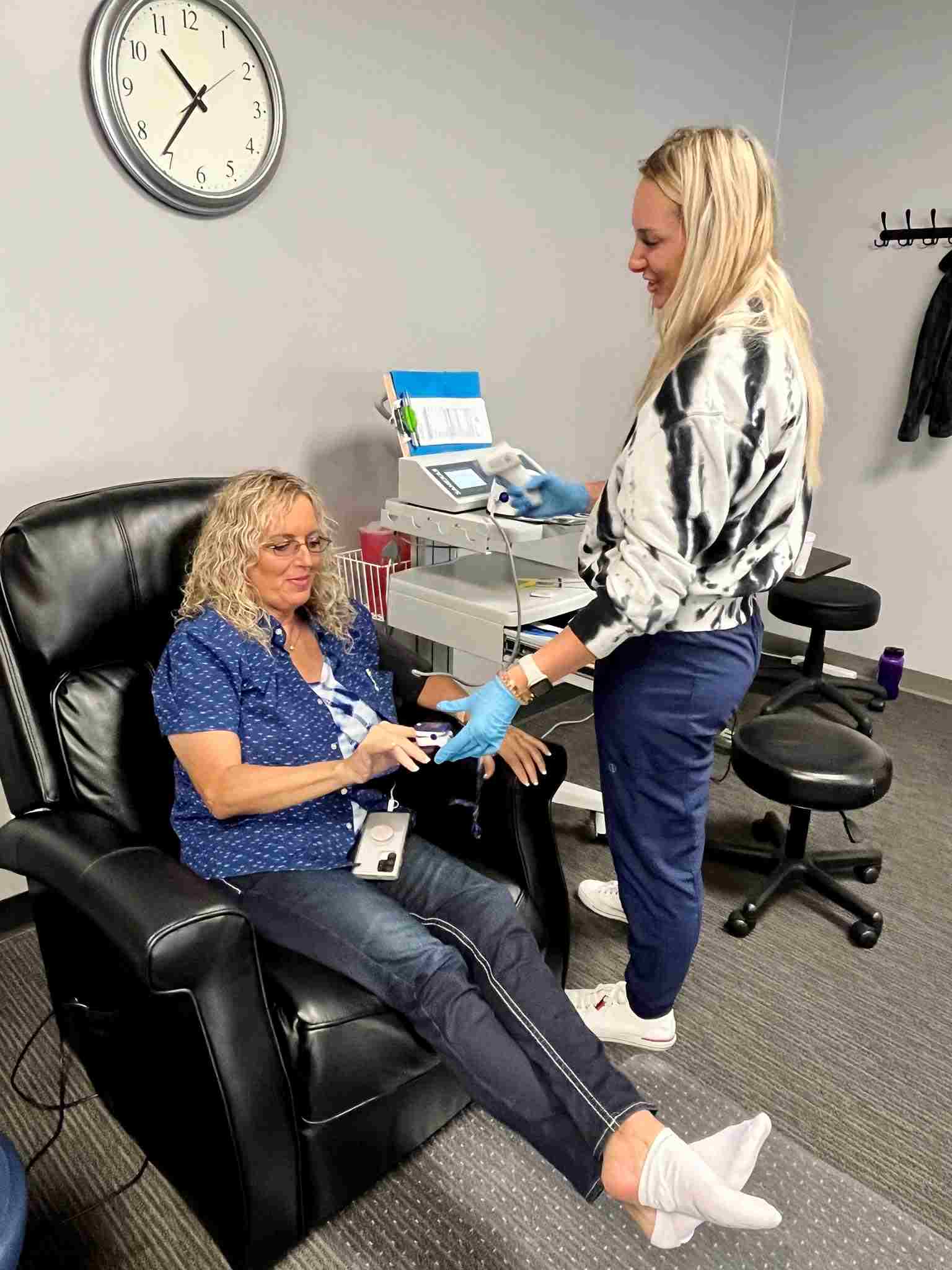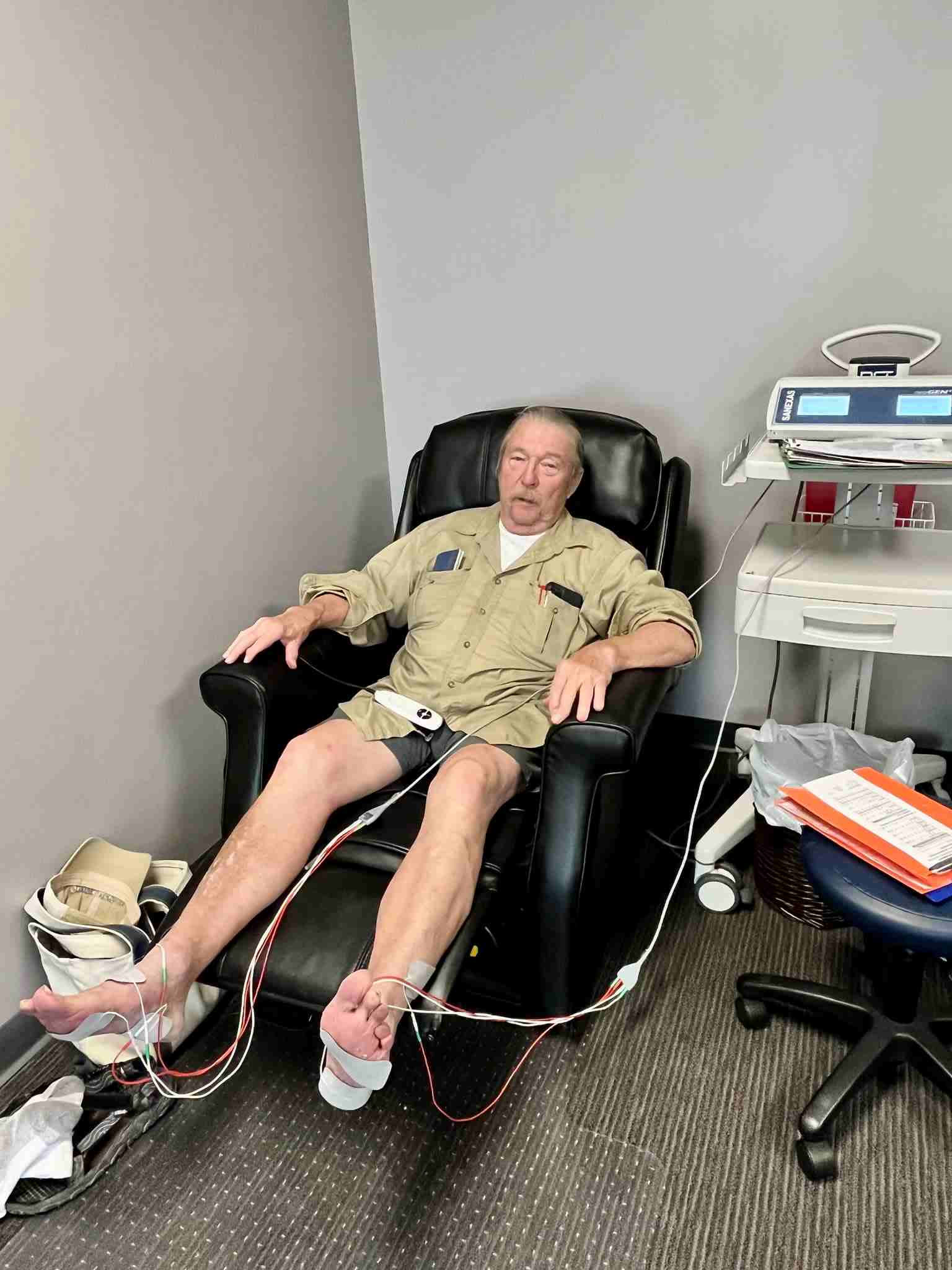Innovative Treatment Options for Knee Pain Relief
Knee pain is an affliction that affects millions worldwide, often diminishing one's quality of life and hindering daily activities. Top Knee Pain Specialist Centennial CO . In Centennial, knee pain specialists are at the forefront of offering innovative treatment options that aim to alleviate discomfort and enhance mobility. These specialists are dedicated to using both cutting-edge technology and holistic approaches to ensure patients receive comprehensive care tailored to their specific needs.
One of the most groundbreaking advancements in knee pain relief is the use of regenerative medicine, particularly stem cell therapy and platelet-rich plasma (PRP) injections. These treatments work by harnessing the body's natural healing processes to repair damaged tissues and reduce inflammation. Stem cell therapy involves injecting stem cells into the affected area, which can differentiate into various cell types and promote tissue regeneration. Similarly, PRP injections use a concentration of a patient's own platelets to accelerate the healing process. Both treatments have shown promising results in reducing pain and improving joint function, offering hope to those who have not found relief through traditional methods.
Another innovative approach embraced by Centennial knee pain specialists is the use of minimally invasive arthroscopic surgery. Unlike traditional open surgery, arthroscopy involves small incisions and the use of a camera to guide the procedure. This technique not only reduces recovery time but also minimizes the risk of complications, making it an appealing option for those who require surgical intervention.
Physical therapy remains a cornerstone of knee pain treatment, and Centennial specialists are integrating advanced techniques such as biomechanical analysis and personalized exercise programs. By understanding the unique mechanics of a patient's body, therapists can develop targeted exercises that strengthen the muscles around the knee, improve flexibility, and prevent further injury. This personalized approach ensures that patients receive care that is not only effective but also sustainable in the long term.
Moreover, the role of technology cannot be overstated. Wearable devices and mobile apps are increasingly used to monitor a patient's progress and adherence to treatment plans. These tools provide real-time feedback and data, allowing specialists to make informed adjustments to therapy and ensure optimal outcomes.
In addition to these medical interventions, Centennial knee pain specialists emphasize the importance of lifestyle modifications. Nutritional counseling, weight management, and stress reduction techniques are all part of a holistic approach to knee pain management. By addressing these factors, specialists help patients achieve a healthier lifestyle that supports joint health and prevents future pain.

In conclusion, Centennial knee pain specialists are leading the way in offering innovative treatment options that combine advanced medical interventions with holistic care. By focusing on regenerative medicine, minimally invasive surgery, personalized physical therapy, and lifestyle modifications, they provide comprehensive solutions that not only relieve pain but also enhance overall well-being. As these specialists continue to embrace new technologies and methodologies, patients can look forward to more effective and sustainable relief from knee pain.
The Role of Physical Therapy in Managing Knee Pain
Knee pain is a common ailment that affects individuals across various age groups and lifestyles, posing significant challenges to mobility and quality of life. For those seeking effective solutions in Centennial, a knee pain specialist may recommend physical therapy as a critical component of a comprehensive treatment plan. Physical therapy plays a pivotal role in managing knee pain by addressing the root causes of the discomfort, promoting healing, and empowering patients with the tools needed for long-term health and functionality.
Physical therapy for knee pain involves a personalized approach tailored to the unique needs of each patient. It often begins with a thorough assessment to identify the underlying causes of the pain, which may include muscle imbalances, joint misalignment, or the aftermath of an injury. By understanding the specific contributing factors, physical therapists can develop targeted interventions designed to alleviate pain and restore optimal movement patterns.
One of the primary benefits of physical therapy in managing knee pain is its focus on strengthening the muscles surrounding the knee joint. Stronger muscles provide better support and stability, reducing the stress placed on the knee itself. Through carefully curated exercises, physical therapists help patients build strength in the quadriceps, hamstrings, and calf muscles, which play crucial roles in knee function. This strengthening not only alleviates current discomfort but also helps prevent future injuries.
Flexibility is another key component addressed in physical therapy. Tight or inflexible muscles can contribute to improper knee mechanics and exacerbate pain. Stretching exercises and techniques such as myofascial release are employed to improve flexibility and range of motion, ensuring that the knee can move freely without restriction. Centennial CO Arthritis Care Specialist This aspect of therapy is particularly beneficial for individuals with conditions such as arthritis, where joint stiffness is a common complaint.

In addition to exercises, physical therapists utilize various modalities to manage knee pain. Techniques such as ultrasound, electrical stimulation, and heat or cold therapy can provide immediate relief by reducing inflammation and promoting circulation. These modalities, combined with manual therapy techniques like massage and joint mobilization, work synergistically to create an environment conducive to healing.
Education is another cornerstone of physical therapy for knee pain. Patients are equipped with knowledge about proper body mechanics, posture, and activity modifications to prevent exacerbating their condition. By understanding the importance of maintaining a healthy weight, using supportive footwear, and practicing safe movement patterns, individuals can take an active role in managing their knee health beyond the therapy sessions.
The holistic approach of physical therapy not only addresses the physical aspects of knee pain but also considers the emotional and psychological impact of living with chronic discomfort. Therapists provide encouragement and support, helping patients regain confidence in their movement abilities and fostering a positive outlook on their recovery journey.
In conclusion, physical therapy is an invaluable resource for managing knee pain, offering a multifaceted approach that addresses the underlying causes of discomfort and empowers patients with the tools needed for lasting improvement. In Centennial, knee pain specialists recognize the vital role physical therapy plays in enhancing mobility, reducing pain, and improving the overall quality of life for those afflicted by knee issues. Through personalized care, targeted exercises, and patient education, physical therapy serves as a cornerstone in the effective management of knee pain.

Surgical Interventions: When and Why They May Be Necessary
Surgical Interventions: When and Why They May Be Necessary for Centennial Knee Pain Specialist Treatment
Knee pain is a common ailment that affects a large segment of the population, particularly as individuals age or engage in high-impact sports. In Centennial, knee pain specialists are at the forefront of diagnosing and treating this debilitating condition. While many cases of knee pain can be managed through conservative measures such as physical therapy, medication, or lifestyle modifications, there are situations where surgical interventions become necessary to restore mobility and alleviate discomfort.
Our clinic makes non invasive pain management centennial co easier than trying to assemble furniture without instructions
Surgical interventions are typically considered when non-surgical treatments have failed to provide relief or when the structural integrity of the knee is compromised. One of the most common reasons for knee surgery is osteoarthritis, a degenerative condition that leads to the breakdown of cartilage, resulting in pain and stiffness. When the cartilage is worn away to the point that bones rub against each other, a total knee replacement may be recommended. This procedure involves replacing the damaged joint surfaces with artificial components, providing significant pain relief and improved function.
In addition to osteoarthritis, other conditions may necessitate surgical intervention. Meniscal tears, ligament injuries such as those to the anterior cruciate ligament (ACL), and fractures around the knee joint are all potential candidates for surgery.
Our clinic makes non invasive pain management centennial co easier than trying to assemble furniture without instructions
- Arthritis Pain Treatment Centennial CO
- Advanced Regenerative Medicine Centennial CO
- PRP Injections Centennial CO
The decision to proceed with surgery is not taken lightly. Knee pain specialists in Centennial conduct thorough evaluations, including physical examinations, imaging studies, and discussions of the patients medical history and lifestyle. This comprehensive approach ensures that surgery is only recommended when the potential benefits outweigh the risks. Factors such as the patients age, activity level, and overall health are considered to tailor the treatment plan to individual needs.
Surgical interventions for knee pain are continually evolving, with advancements in technology and techniques improving outcomes and recovery times. Minimally invasive procedures, such as arthroscopy, allow for smaller incisions, reduced pain, and quicker rehabilitation compared to traditional open surgeries. These innovations have made surgical options more accessible and less daunting for patients who require them.
Ultimately, the goal of surgical intervention is to enhance the quality of life for those suffering from knee pain. By addressing the underlying cause of discomfort and restoring function, surgery can offer a new lease on life for patients who have struggled with limited mobility and chronic pain. Centennial knee pain specialists are dedicated to providing expert care and guidance, ensuring that surgical options are considered with the utmost care and precision.
In conclusion, while many knee pain issues can be managed non-surgically, there are instances where surgical interventions become a necessary part of treatment. By understanding when and why surgery may be required, patients can make informed decisions about their health and work closely with their specialists to achieve the best possible outcomes.
Post-Treatment Care and Rehabilitation Strategies
Post-treatment care and rehabilitation strategies are crucial components in the continuum of care for patients undergoing treatment for knee pain at a centennial knee pain specialist center. As knee pain is a common ailment that can significantly impact an individual's quality of life, it is imperative that a comprehensive approach is taken to ensure optimal recovery and long-term functionality.
The first step in post-treatment care involves managing pain and inflammation, which are common after both surgical and non-surgical interventions. This can be achieved through a combination of medications, such as non-steroidal anti-inflammatory drugs (NSAIDs), and physical modalities like ice packs and compression. The goal is to reduce discomfort and swelling, facilitating a smoother transition into rehabilitation activities.
Rehabilitation strategies are tailored to each patient, taking into account the specific cause of knee pain, the treatment undergone, and the patient's overall health status. Physical therapy plays a pivotal role in rehabilitation, focusing on restoring strength, flexibility, and range of motion to the knee joint. A structured exercise program is designed by a physical therapist, targeting the muscles surrounding the knee, such as the quadriceps, hamstrings, and calf muscles, to provide stability and support.
In some cases, specialized techniques such as aquatic therapy might be recommended. The buoyancy of water reduces stress on the knee joint while allowing the patient to engage in exercises that promote movement and strength. Additionally, balance and proprioception exercises are incorporated to enhance coordination and prevent future injuries.
Education is another critical aspect of post-treatment care. Patients are often educated on lifestyle modifications that can alleviate knee pain and prevent recurrence. This includes guidance on weight management, proper footwear, and ergonomic adaptations in daily activities to reduce knee strain. Patients are also taught to recognize the signs of potential complications and the importance of adhering to follow-up appointments for continuous monitoring of their progress.
For centennial patients, who may face additional challenges due to age-related changes, a multidisciplinary approach can be beneficial. Collaboration between orthopedic specialists, physical therapists, nutritionists, and sometimes geriatricians ensures that all aspects of the patient's health are considered in the rehabilitation plan. This holistic approach can address not only the physical aspects of recovery but also the mental and emotional well-being of the patient.
In conclusion, post-treatment care and rehabilitation strategies for knee pain require a personalized and comprehensive approach. By focusing on pain management, physical rehabilitation, education, and lifestyle modifications, centennial knee pain specialists can help patients achieve better outcomes and improve their overall quality of life. Successful rehabilitation not only alleviates knee pain but also empowers patients to return to their daily activities with confidence and ease.
